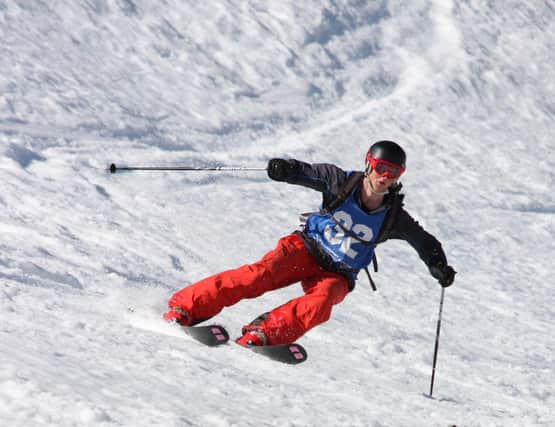Will UK skiers turn to Scotland for their snow fix this winter?


As outlined here a few weeks ago, the winter of 2019/20 has been a particularly cruel one for the Scottish ski industry. To begin with, in December and January, there wasn’t enough snow to get the resorts up and running properly. Then, when the white stuff did finally arrive by the bucketload in the middle of February, there was hardly any time to capitalise before Covid-19 shut everything down. Running a ski hill in Scotland can be a precarious business at the best of times, but in financial terms this year will make the apocalyptic snow drought of 2016-17 seem like a minor inconvenience.
Before we get too gloomy, though, let’s consider a scenario in which the current crisis could in fact work in the favour of the Scottish ski centres – and Scotland’s outdoors industry in general.
Advertisement
Hide AdAdvertisement
Hide AdEarlier this month, the UK government’s chief scientific adviser Patrick Vallance stated that, with multiple teams now working on a vaccine for Covid-19 in labs all around the world, it was possible that one might be widely available in 12-18 months. He added, however, that this was “not certain.” Let’s assume things go well, though, and a vaccine is ready to be rolled out on a global scale exactly a year from now, in April 2021 – that would more-or-less coincide with the tail-end of the 2020/21 ski season.
As things stand, then, it seems unlikely that anyone will be getting vaccinated for Covid-19 before or even during the winter of 2020/21, so for the next year or so the only meaningful way in which the world will be able to tackle the virus will be by trying to limit its spread as much as possible. Under these circumstances, even if curves are flattened as hoped in the months ahead, it’s difficult to see how international air travel will be back to normal again by January. And even if our relatively laissez-faire government (assuming it is still bumbling along in its current form) decides it’s OK for everyone to start flying off on holiday by Christmas, will the more proactive governments of Alpine nations such as France, Italy and Austria agree? Particularly when the UK seems likely to become the European nation with the most deaths from Covid-19 and probably (although we’ll have no way of knowing for sure) the highest infection rate? The way things are going at the moment, British tourists will be about as welcome in the Alps in the early months of 2021 as tourists from Wuhan were in the early months of 2020.
Another thing to bear in mind is that a significant proportion of ski holidays are booked months in advance – if you want the best rates on February flights and accommodation, you really need to be booking in August or September. If things are still looking as uncertain at the end of the summer as they are now, you would have to be either very rich or very foolish to go ahead and book a ski trip to the Alps when you knew there was a good chance you wouldn’t be able to take it.
Come the autumn, then, it seems possible that there could be many thousands of skiers from all over the UK who are desperate for their annual snow fix but who will either be unable to get to Europe due to travel restrictions or unwilling to risk spending several hours hanging around airports and several more hours sitting in close proximity to other people on board planes. Those super-rich UK skiers who haven’t already emigrated to New Zealand by this point might decide it’s worth trying to get to North America (how much will it cost, next January, to fly to Colorado on a half-full plane?) but the majority of snowsports enthusiasts will be looking at cheaper options closer to home.
Occasionally it’s possible to ski in the Lake District – the Lake District Ski Club operates a 360 metre-long button tow on Raise, next to Helvellyn – but there are only five serious ski hills in the UK and they’re all in Scotland. Come the winter, then, we could find ourselves in a situation (and I stress “could”) where large numbers of UK-based skiers who would ordinarily be hopping on Easyjet flights to the Alps have no option but to ski at either Cairngorm, Glencoe, Glenshee, the Lecht or Nevis Range.
Would such internal ski tourism be permitted? Perhaps not for everyone, but if the government’s plans for immunity passports come to fruition, and if reliable antibody tests have been found, it doesn’t seem beyond the bounds of possibility that a substantial chunk of the population might be able to move around the country relatively freely again by the start of 2021, even if they can’t travel overseas.
Could this help Scotland’s ski centres recoup some of their losses from this year? Very much so. But only if it snows.